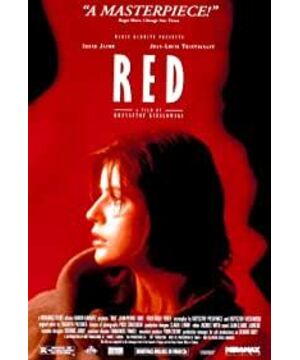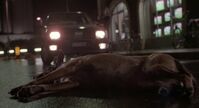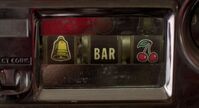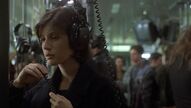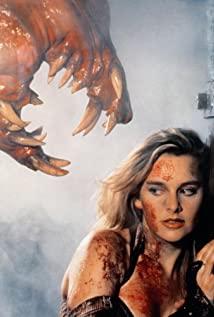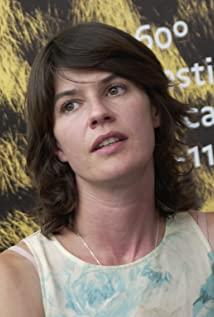The image of the red middle-aged judges is very autobiographical: as the eyes and mouthpieces of the law, corresponding to the documentary period of the director, they endorsed the truth for themselves, but they found the truth helplessly and were always scared away by their capture of it: The closer the camera is to the people being photographed, the more they "perform" themselves; the more the law requires people to tell the truth, the truth is about to be hidden. Unlike the director who directly moved to fictional drama, the old judge was caught in the situation of world night: he cut off all contact with the outside world and became a pure eavesdropper/observer: at least here, everything is true .
In the first exchange, Valentine's presence as an ignorant, fragile glass-hearted Other turned the old judge from a mere transcendent eavesdropper to revealing himself to this other as an eavesdropper the "main body of the manifesto". This shift is of course to be understood in terms of Descartes' move from general skepticism to "I think, therefore I am" conclusiveness, which in Descartes was ultimately guaranteed by God; for the old judge, the guarantee was Lundin's "silly white sweet" (the homogeneity of silly white sweet and God can be explained by a famous saying from scholasticism that "God is the most ignorant, he does not even know there is hatred"). As a result, Valentine occupies the ideal position of the old judge's ego, from which he sees himself and wants to be "worthy of love."
Valentine, who is overflowing with sympathy, thus occupies the position of the big Other relative to the judge, which is consistent with the female big Other that is full of human civilization, and the "opposite side of the Mobius belt" of this image is a woman The body as a metaphor for the original music: Valentine's daily life is dancing, modeling and accepting advertisements, as the humanoid incarnation of the original music of the phallus of goods. In addition, Valentine's shameful beauty is reminiscent of Antigone, and the two share a "dogmatic stupidity" attribute, the former is eternal guilt for the younger brother, the latter is the insistence on burying the elder brother . According to Lacan, the confrontation between Antigone and the law of the kingdom is the opposition between the rigid referents at the bottom of the language, surrounding the real and rejecting metonymy, and the metonymic reduction in the language as a whole, while the beautiful refers to the rigid referents standing in the Before the reality of desire, the sublime beauty that restrains desire. The reference to Antigone can also understand the old judge's shyness to self-report in front of Valentine: he retreated in front of Valentine's beauty and curbed his voyeurism.
Valentine's next dimension as the Other is as the old judge's psychoanalyst (it shouldn't be overlooked that the soundtrack's title is "Psychoanalysis" in their third dialogue), and she insightfully points out the old judge's account Always "covering up what's really important" and eventually (through the "double" from the old judge - the acquaintance of Augustus) supersedes the old judge's original wound. This leads to the opposite of psychoanalysis: instead of traversing fantasy in some form (like dying in the final shipwreck), but finally elevating her with a portrait of Valentine stitched together without any counterpoint shots For the sublime object of fraternity that stitches together the whole series.
View more about Three Colors: Red reviews


